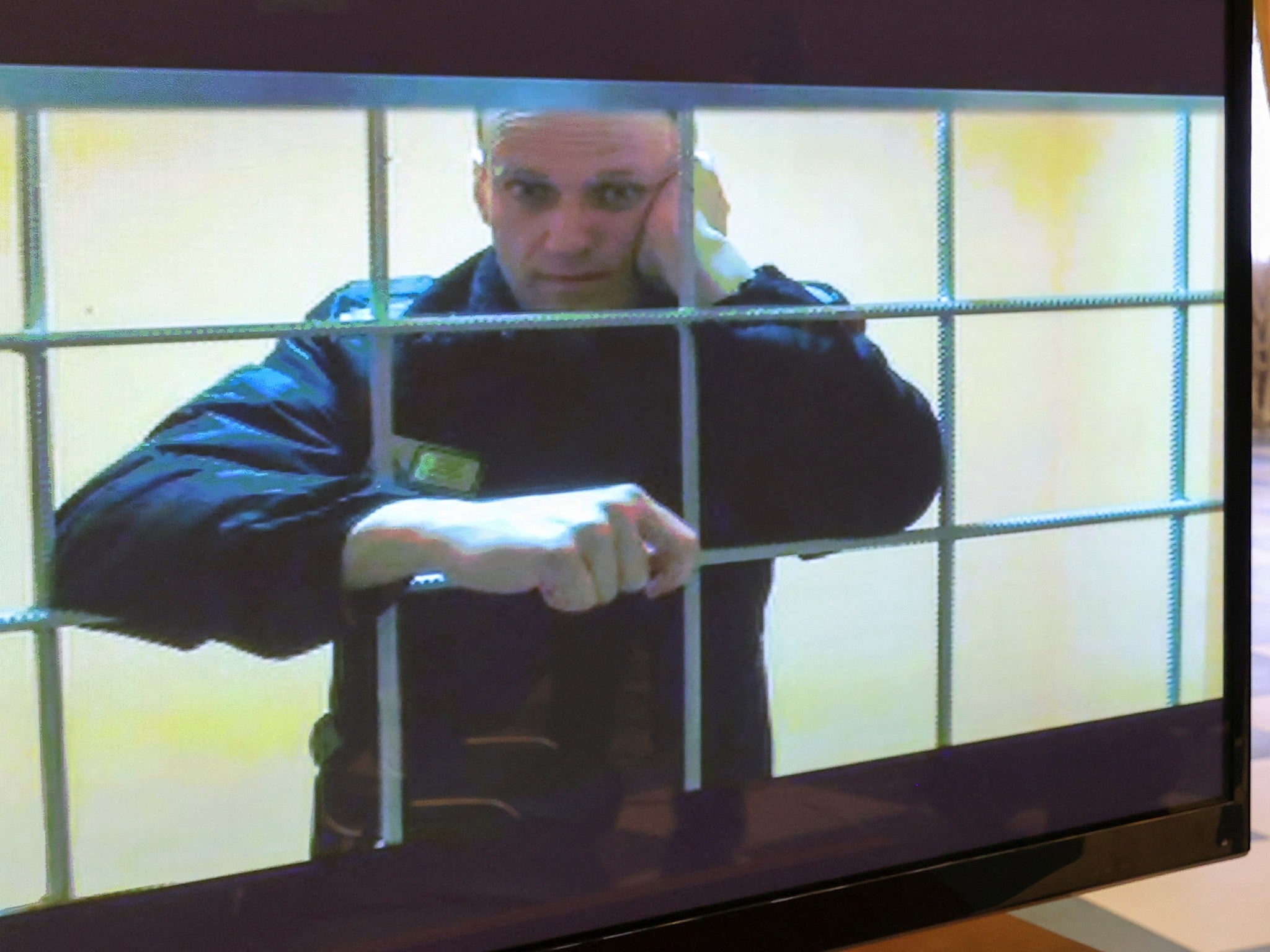Russia seeks another 20 years in prison for jailed Putin critic Navalny
The opposition leader faces a mix of new charges, which he says are fabricated to keep him out of political life

Your support helps us to tell the story
From reproductive rights to climate change to Big Tech, The Independent is on the ground when the story is developing. Whether it's investigating the financials of Elon Musk's pro-Trump PAC or producing our latest documentary, 'The A Word', which shines a light on the American women fighting for reproductive rights, we know how important it is to parse out the facts from the messaging.
At such a critical moment in US history, we need reporters on the ground. Your donation allows us to keep sending journalists to speak to both sides of the story.
The Independent is trusted by Americans across the entire political spectrum. And unlike many other quality news outlets, we choose not to lock Americans out of our reporting and analysis with paywalls. We believe quality journalism should be available to everyone, paid for by those who can afford it.
Your support makes all the difference.Russian prosecutors have called for Vladimir Putin's most prominent critic, Alexei Navalny, to be jailed for a further 20 years on extremism charges.
The 47-year-old has been on trial behind closed doors for a month at the IK-6 penal colony in Melekhovo, about 145 miles (235km) east of Moscow, where he is already serving sentences totalling more than 11 years on fraud and other charges which are widely seen as being trumped up to silence him.
In his closing statement released by his team, Mr Navalny bashed Russian authorities as being governed by "bargaining, power, bribery, deception, treachery... and not law." Mr Navalny said: "Anyone in Russia knows that a person who seeks justice in a court of law is completely vulnerable. The case of that person is hopeless."
The opposition politician faces a grab-bag of new charges, which he says are similarly fabricated to keep him out of political life.
Court records show they relate to six different articles of the Russian criminal code, including inciting and financing extremist activity and creating an extremist organisation.
Mr Navalny's aides said the verdict would be announced on 4 August acquittals of opposition figures are practically unheard-of in Russia.
In another part of his closing statement, Mr Navalny told the court: "I continue to fight against that unscrupulous evil that calls itself 'the state power of the Russian Federation'."
"I am accused of inciting hatred towards representatives of the authorities and special services, judges and members of the United Russia party. No, I don't incite hatred. I just remember that a person has two legs: conscience and intellect," he said, according to a text supplied by his aides.
Mr Navalny said there were only 18 people present in the court. He told them: "When you finally understand that the rejection of conscience will eventually lead to the disappearance of the intellect, then maybe you will stand on those two legs on which a person should stand, and together we can bring the Beautiful Russia of the Future closer."
At the start of his trial, Mr Navalny, who in the 2010s brought people onto the streets in their tens of thousands, urged Russians to "join forces in the fight against Putin's lies and Kremlin hypocrisy" ahead of a presidential election in 2024.
Mr Navalny earned admiration from the disparate opposition for voluntarily returning to Russia in 2021 from Germany, where he had been treated for what Western laboratory tests showed was an attempt to poison him in Russia with a Soviet-era nerve agent. The Kremlin denied trying to kill him and said there was no evidence he had been poisoned with such a toxin.
Russia has outlawed Mr Navalny's campaign organisation as part of a crackdown on dissent that started well before the conflict in Ukraine and has intensified in the nearly 17 months since it started.
Navalny's supporters accuse Moscow of trying to break him in jail, where he has had long spells in solitary confinement.
The Kremlin denies persecuting Navalny, whom it has portrayed as a Western-backed agent of political disruption, and says his case is purely a legal matter for the courts.
"We are not following this trial," Mr Putin's spokesman Dmitri Peskov told reporters last month.
Reuters
Join our commenting forum
Join thought-provoking conversations, follow other Independent readers and see their replies
Comments